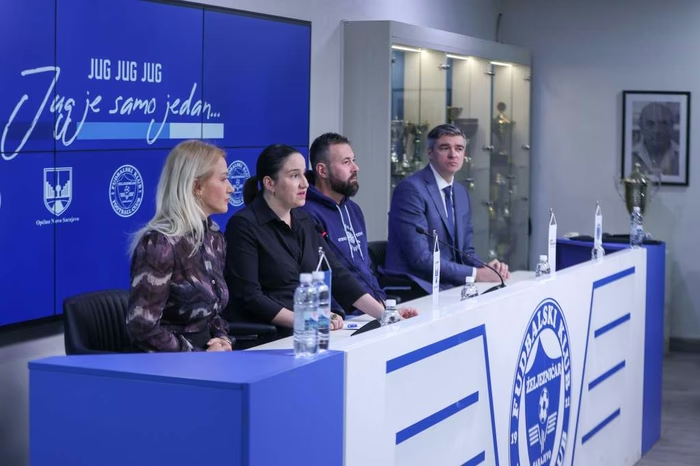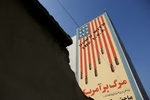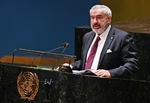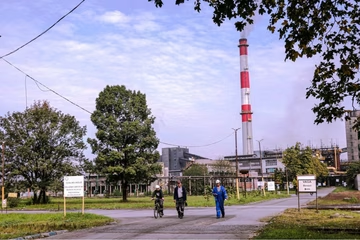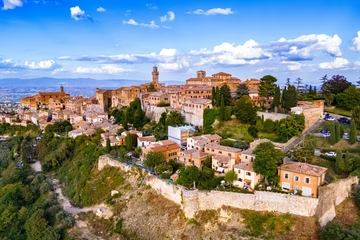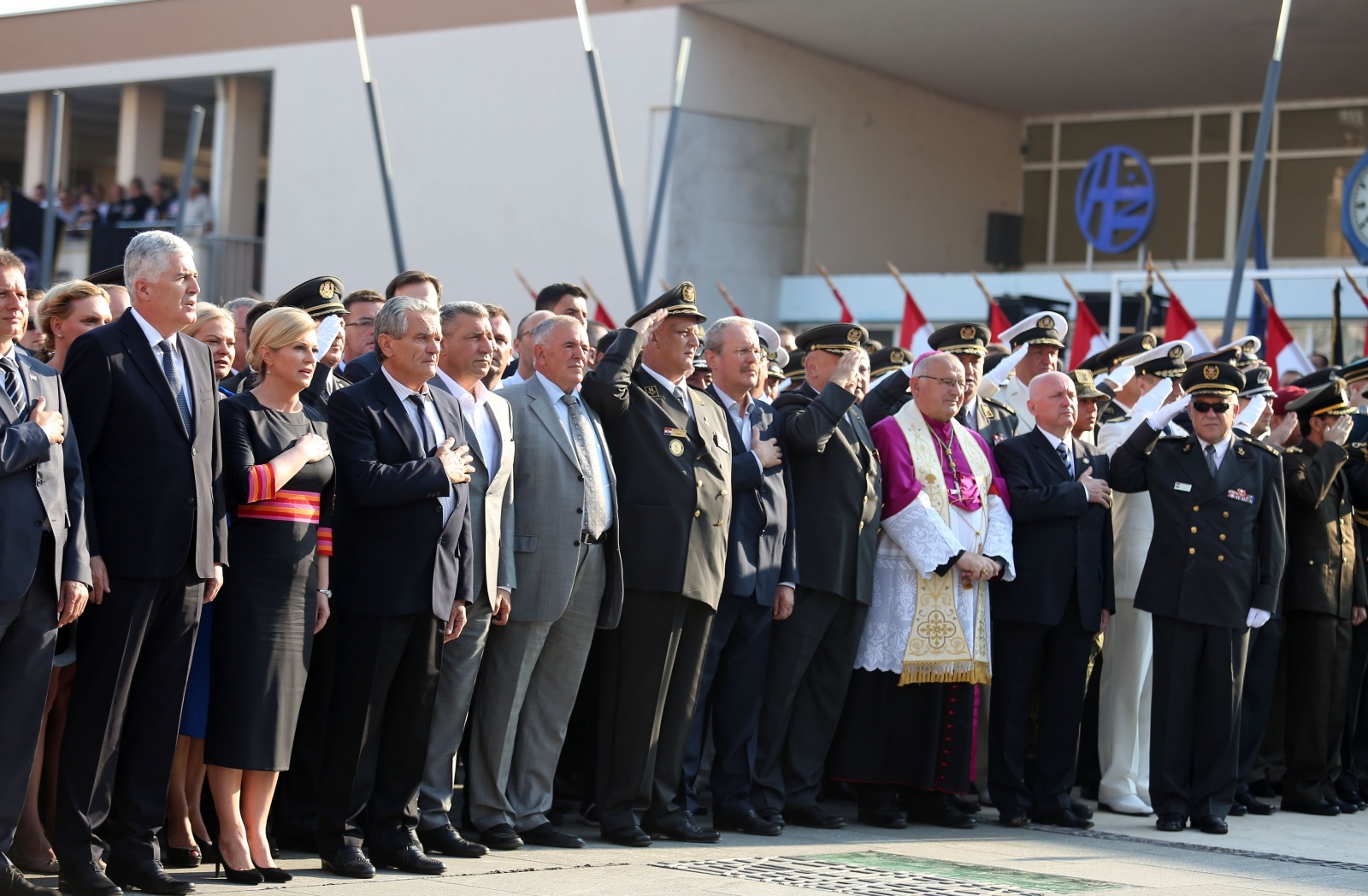
The central celebration of Victory and Homeland Thanksgiving Day, Croatian War Veterans Day and the 23rd anniversary of Operation Storm started in Knin on Sunday morning with wreath laying and candle lighting ceremonies in that southern town.
Oglas
Wreaths were laid by President Kolinda Grabar-Kitarovic, Parliament Speaker Gordan Jandrokovic and Prime Minister Andrej Plenkovic. Before the wreath-laying ceremony, the reveille was played by the Armed Forces Orchestra in the streets of Knin.
Victory and Homeland Thanksgiving Day is observed on 5 August in memory of Operation Storm, a joint military and police operation that ended a Serb armed rebellion in August 1995 and restored Croatian sovereignty over occupied central and southern parts of the country, enabling peaceful reintegration of eastern Croatia in January 1998.
The central celebration in Knin was also attended by representatives of ally and partner countries, the United States and Israel.
Oglas
The United States is represented by Major General Jon A. Jensen of the Minnesota National Guard, the wing commander of the Minnesota National Guard, Col. Christopher M. Blomquist, and the US military envoy to Croatia, Brigadier Robert Mathers with a delegation, according to a press release issued by the Croatian Ministry of Defence.
Israel is represented by the director of SIBAT, General Michel Ben Baruch, Commander of the Ramat David Airbase and Israel's military envoy to Croatia Brigadier Harel Taggar with a delegation.
This year's celebration is also attended by military envoys from other ally and partner countries accredited in Croatia.
Operation Storm was launched at 5 am on August 4, 1995, and within the next 84 hours, 10,400 square kilometres or 18.4 per cent of Croatia's territory was liberated. A 20-metre-long Croatian flag was displayed at the fortress in Knin, the heart of the Serb rebellion, at noon on August 5.
Oglas
About 200,000 soldiers and police took part in the biggest operation of the Homeland War, of whom 174 were killed and over 1,400 wounded. Operation Storm marked the end of the war in Croatia, created conditions for the peaceful reintegration of the eastern Danube River region, spared the northwestern Bosnian town of Bihac from the fate of Srebrenica, and enabled the return of refugees and displaced persons.
Kakvo je tvoje mišljenje o ovome?
Učestvuj u diskusiji ili pročitaj komentare
Oglas
Kakvo je tvoje mišljenje o ovome?
Učestvuj u diskusiji ili pročitaj komentare
Oglas





 Srbija
Srbija
 Hrvatska
Hrvatska
 Slovenija
Slovenija


















